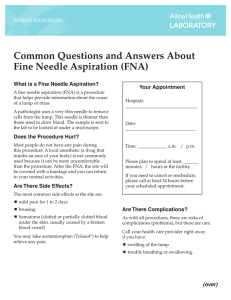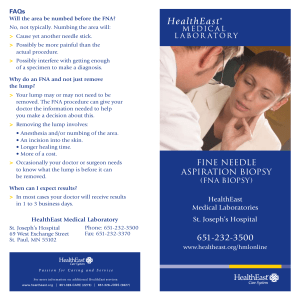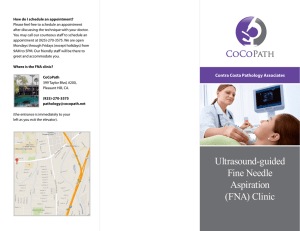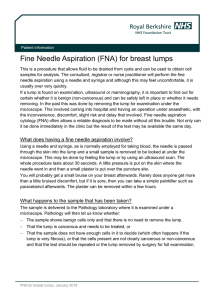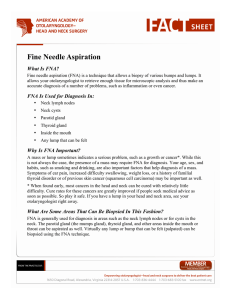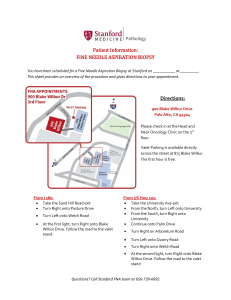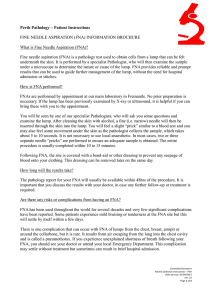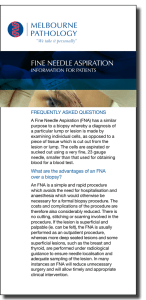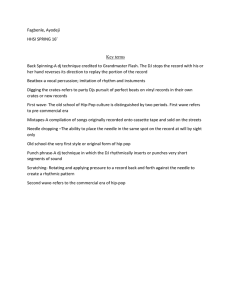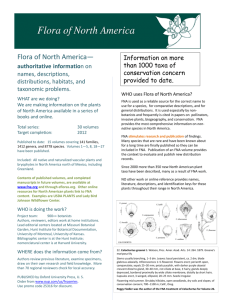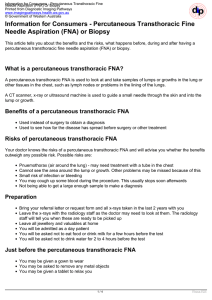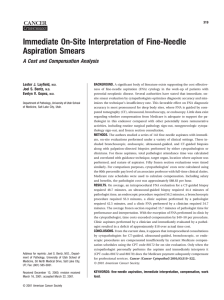Fine Needle Aspiration (FNA)
advertisement
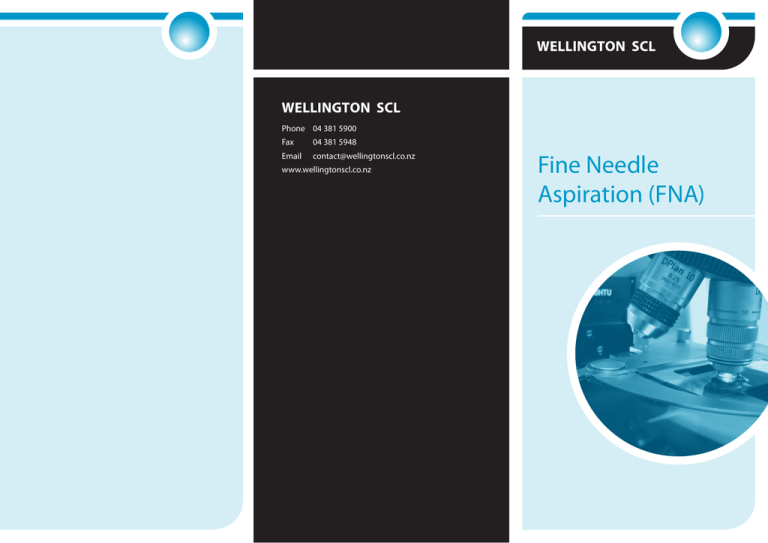
Phone 04 381 5900 Fax 04 381 5948 Emailcontact@wellingtonscl.co.nz www.wellingtonscl.co.nz Fine Needle Aspiration (FNA) Fine Needle Aspiration Are there any complications? Your doctor has requested a Fine Needle Aspiration (FNA) biopsy to be performed by a pathologist at Wellington SCL. Fine Needle Aspiration is a test which uses a fine (thin) needle which is passed through the skin to obtain some cells from a lump in the body. These cells are examined under the microscope by the pathologist performing the test. In many cases this is an alternative to having an anaesthetic and having the lump cut out. Yes, there can be but significant problems are rare. There may be some minor local bruising, swelling and tenderness for a few days. Occasionally a tingling is noted during the aspiration. This may mean a small nerve has been touched. Rarely patients having FNAs around the chest area have noticed shortness of breath or chest pain after aspiration. This may be due to air entering the chest (pneumothorax). If you think this may have happened please contact either the pathologist or your own doctor. FNA can usually be undertaken in patients taking aspirin or blood thinners – please let the pathologist know if you are on these medicines. Why do I need an FNA? Are the results reliable? Your doctor feels that a cytological (cellular) examination will help to understand the nature of your lump, and whether anything further needs to be done. Often this test shows that a lump is harmless and can be left alone. Other lumps are best removed. The FNA results may help surgeons plan the surgery better if they know exactly what is wrong. The results of Fine Needle Aspiration are highly reliable but depend on a good sampling. Some lumps do not shed many cells. Sometimes the lump is difficult to find and sample with the needle. If a good sample is not obtained, further investigation may be needed some time after the FNA. Because false negative results may occur, if at any time after an FNA examination you notice any change in a lump, or you are still concerned, you should see your doctor again. What is a Fine Needle Aspiration (FNA)? How is an FNA performed? An FNA involves a consultation with a specialist pathologist. After asking some questions, and examining the lump, the pathologist will clean the skin with alcohol. A very fine needle will be inserted through the skin into the lump, and moved about to obtain a sample of cells. Usually it is not necessary to use any local anaesthetic. Most patients compare the sensation to a blood test. Usually two or three needle ‘sticks’ are necessary to obtain enough material. On completion, pressure is applied for several minutes to minimise any bruising. You are able to resume normal activities after the procedure. Consent to FNA Procedure I, (name of person giving consent) Consent to a Fine Needle Aspiration procedure performed by a doctor at Wellington SCL. I acknowledge I have read and understand a reasonable explanation of the procedure. I have had appropriate opportunity to ask questions which have been answered to my satisfaction. I understand that I may seek further information at any time should I wish to. Signed: Date: Please ensure that you bring this brochure and the request form from your doctor to your appointment. May I have a chaperone? Appointment Confirmation You may have another person of your choice with you during the interview and procedure. If you wish to have a chaperone from the laboratory staff, please inform the receptionist, or the pathologist, before the consultation. Your appointment date & time is: Date: Appointment Information Time: FNA biopsies are undertaken by appointment. Please phone (04) 381 5900 to arrange a time. Location:
